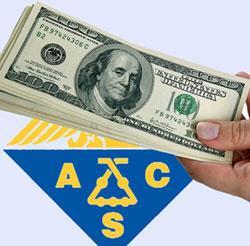American Chemical Society owes nearly $40 million to Leadscope after failed bid to sue for intellectual property theft
The American Chemical Society (ACS) is reeling after being stymied for a second time in its attempt to sue the Columbus, Ohio-based research software provider Leadscope for stealing its intellectual property. Now ACS will likely have to pay Leadscope and its three founding scientists nearly $40 million.

The lawsuit, which has been going on for eight years, came to an end on 15 June when an Ohio appellate court upheld the $34.4 million (?23 million) award for Leadscope in its countersuit, including $7.5 million in punitive damages and $7.9 million in legal fees and expenses.
Leadscope’s three founders are former ACS employees, and the association sued the company in 2002 claiming that it was created with stolen trade secrets from ACS that enabled it to patent a software programme for drug companies that helps shorten the drug development process.
When the case was tried in a lower court in 2008, jurors found no evidence of trade secret misappropriation, and Leadscope and its founders were awarded damages on their counterclaims for defamation, unfair competition and intentionally damaging its business. ACS says it ’respectfully disagrees’ with the higher court’s 15 June decision to uphold that earlier judgment. The association claims that it has ’substantial evidence’ to support its case against Leadscope.
When contacted by Chemistry World, ACS would not go beyond a statement issued following the court ruling, in which it says it is still assessing the details of the court’s findings and will determine whether or not to elevate the matter to the Ohio Supreme Court. But the association does not anticipate that paying the $40 million in fines would result in changes to staff, ongoing programmes, or membership dues.
For its part, Leadscope is celebrating the latest development. ’This is just another step toward the end of this really protracted legal entanglement,’ the company’s president and chief executive, Loftus Lucas, tells Chemistry World. ’It should have been the end a long time ago.’
It is extremely bad for business when a company’s intellectual property is challenged, Lucas states. ’Our primary clients are pharmaceutical companies, and it is very difficult to convince a company to place a huge bet on drug development using software when the biggest chemical society in the world is challenging your ownership of that software,’ he tells Chemistry World.
Rebecca Trager, US correspondent for Research Europe






No comments yet